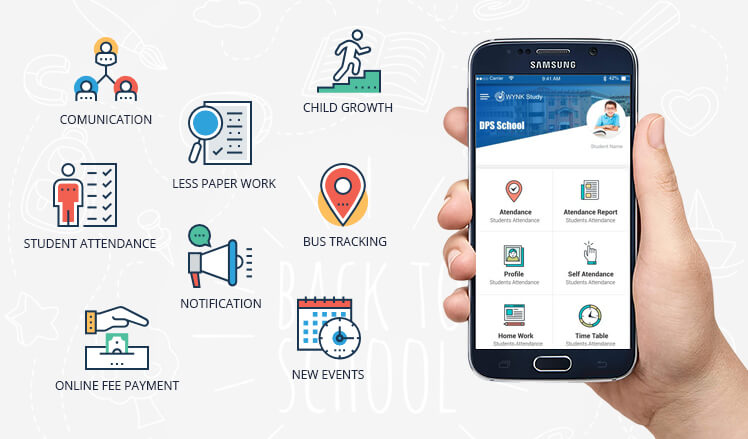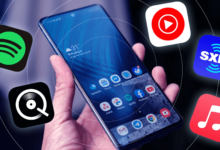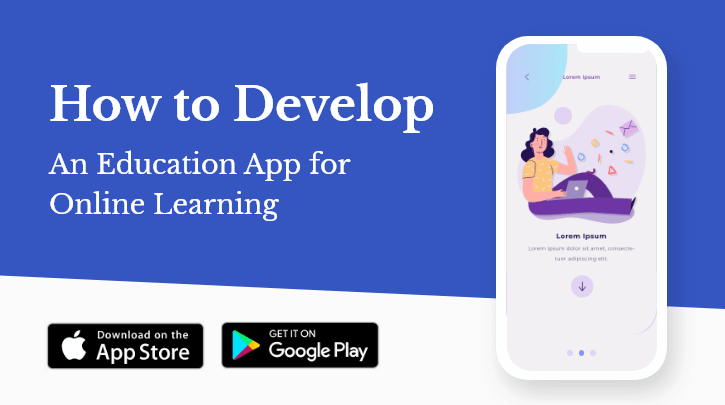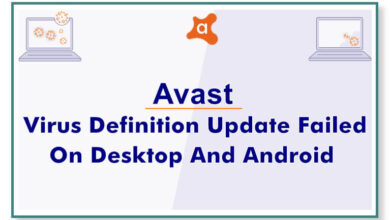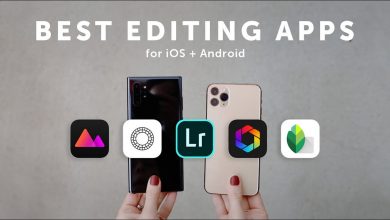How to Develop an Educational App: Process, and Features?
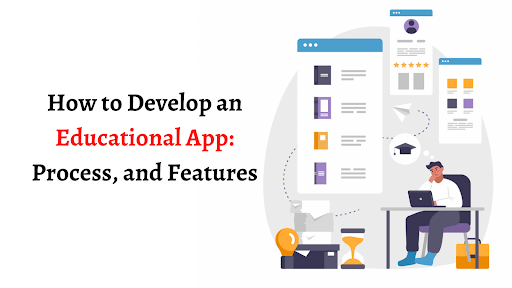
Education app development is a bright and profitable business idea in this technology-driven era. Since the Covid-19 pandemic, more and more people have started using online e-learning apps to study.
Many learners across the globe welcomed the change and advantages that educational apps brought. As per Statista, the worldwide EdTech industry is predicted to reach more than $370 billion by 2026. And the education apps market is forecasted to grow to $70.5 billion by 2025.
So, if you are planning to create an educational app, now is the best time to invest and hire app developers to leverage this massive opportunity.
This blog will discuss crucial features to include in the best educational app and the process of developing the same.
Let’s dive in.
Must-Have Features For Education App Development
Key Education App Features For Teachers
1. Authorization
To use the education app, teachers must sign in to the app through email or phone number to make their profiles.
2. Profile
Teachers can make their profile by providing necessary information like name, job title, courses, certificates, etc.
3. Course Management
It is a crucial feature where teachers can seamlessly manage course content using a dashboard. Teachers can handle various tasks such as viewing students’ progress related to assignments, student details, leaving comments, giving marks, etc.
Moreover, teachers can upload their learning materials like recorded video sessions, PDF documents, photos, and various interactive exercises to test students’ knowledge.
4. Conduct Tests
One of the significant aspects of education apps is that you can analyze students’ progress through online tests.
Key Education App Features For Students
1. Authorization
To access the courses, students must sign in to the app through email, phone number, or social media credentials and then make their profiles.
2. Student Profile
This feature allows users to make their profiles by providing necessary details such as age, location, subject, objectives, etc.
3. Advanced Search
It is an essential feature that helps students to find their preferred courses. They can check various course programs, prices, reviews, teacher information, etc.
4. Student Dashboard
This feature gives students all the required details like purchased courses, ongoing courses, progress reports, upcoming classes, exam schedules, etc.
5. Payments
The payment option enables students to pay for their courses. Therefore, ensure this feature is fully secure and user-friendly.
Step-By-Step Process To Develop Educational App
1. Discovery Phase
Begin With A Unique App Idea
A powerful concept is one of the most significant aspects of any successful app. However, in spite of how fantastic your idea may look, you must assess it by doing comprehensive market research. You can use these steps:
- Analyze existing products and your peers.
- Ask questionnaires among probable users.
- Try to speak to students, teachers, and educational organizations about their pain points.
Identify Target Audience
It is a critical phase where you have to determine who your end-users are and their pain points. The following questions will help you to identify them:
- Who will use your educational app?
- Why will they utilize your app?
- What unique advantages will your app provide to users?
- What issues can it solve?
Hire The Best Mobile App Development Services
After determining your target audience, it is time to take the help of an education app development company. A professional developer will have transparent policies, an easy delivery management technique, project deadlines, and after-sales customer support.
However, you must check organization portfolios, past performance, ratings, and user reviews before hiring them.
Determine Monetization Model
Selecting the right monetization strategy is the essence of overall success. There are diverse profit making models:
- In-App Ads and Promotions
- In-App Purchases
- Subscriptions
- Paid Apps
- Freemium
- Personalized Learning Experiences
You can discuss these monetization models with your mobile app development company and determine which suits you the best.
2. Select the Platform
There are two major mobile operating systems, i.e., Android and iOS. It would help to determine whether you wish to make an app for iOS, Android, or both.
You can pick a native app development approach for creating an educational app for a particular platform or cross-platform app development if you want to launch your app on both operating systems.
Technology Stack Required To Develop Educational App
Choosing the right technology is essential to develop an educational app successfully. The selected mobile app tech stack impacts the scalability, development time, costs, and profitability.
Below we have mentioned suitable technologies to build an educational mobile app:
Tech Stack For an iOS-based Educational App
- Programming Languages: Objective-C, Swift
- Toolkit: Apple Xcode
- SDK: iOS SDK
Tech Stack For an Android-based Educational App
- Programming Languages: Java, Kotlin
- Toolkit: Android Studio and Android Developer Tools
- SDK: Android SDK
Tech Stack For Hybrid Educational App
- Programming Languages: JavaScript, HTML, CSS, TypeScript, Dart, C#
- Frameworks: Ionic, React Native, Flutter, Xamarin, Apache Cordova
Tech Stack For Web-based Educational App
- Programming Languages: HTML, CSS, JavaScript
- Frameworks: React, Vue.js, Angular
Tech Stack For Backend Development
- Programming Languages: PHP, Python, Ruby, Node.js, Java
- Frameworks: Larval, CakePHP, Ruby on Rails, Django, Express.js, Spring
As you can see, multiple technologies follow a specific mobile app development process. It is critical to consult the best mobile app development services provider to make the right choice for scalability and app security.
3. App Design
Popular apps always have two specialties; they look better and are functional. Another vital aspect in creating an e-Learning app is the UI/UX design, as the build and feel of any app are prominent.
The design should be simple and user-friendly and can be used by students and teachers.
4. Development
Once the client approves the design, the next phase starts with integrating features and functionalities to build a fully-operational education app.
5. Testing
You would like your app to work flawlessly without any bugs. Therefore, testing is compulsory in the mobile app development process. One can get the expected performance with rigorous testing.
6. Deployment
Once the educational app is built, your app developer will release it to Google Play Store and Apple App Store.
7. Maintenance
Users will leave the app if they experience bugs, lags, or errors. Regular updates, constant improvements, new features, performance, and security are something that keeps your app on the market.
The Bottom Line
Educational apps for learners are the future of digital education. The education industry has abundant opportunities for businesses with unique mobile app ideas. You can earn massive returns by delivering an effective mobile app solution that assists learners and educators.
The best method is to work with a competent EdTech app development company that offers proven excellence in developing educational apps.

